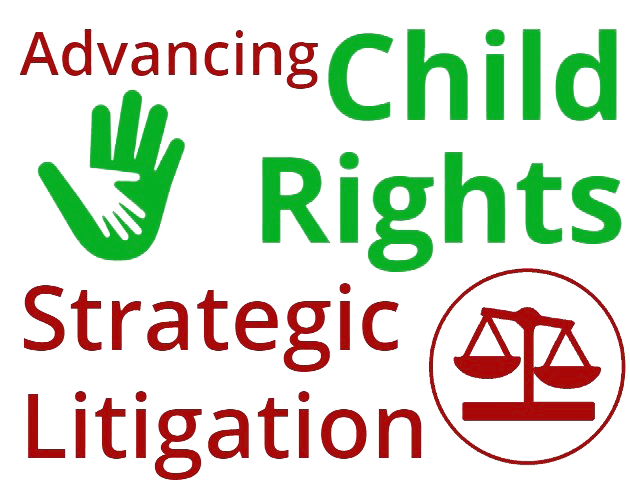Roper, Superintendent, Potosi Correctional Center v. Christopher Simmons, 543 U.S. 551 (2005), No. 03-633 - United States of America
Background
Simmons was convicted of committing a murder carried out when he was 17 years old and sentenced to death when he was 18. The case centred on whether the death penalty constituted cruel or unusual punishment as prohibited under the Eight Amendment to the United States Constitution when applied for offences committed while under the age of 18.
Reasoning
The Supreme Court held that the prohibition against “cruel and unusual punishments” (543 U.S. 551, 6 (2005)) must be interpreted according to its text, history, tradition, purpose and the evolving standards of decency that mark the progress of a maturing society. Citing earlier case-law (Atkins v. Virginia), the court determined that society views children as “categorically less culpable than the average adult criminal” (543 U.S. 551, 13 (2005)). Therefore, the Eighth Amendment requires the rejection of the imposition of the death penalty for offences committed under the age of 18.
The Court relied on three general differences between children and adults in its reasoning. First, the acts of children are “less morally reprehensible” (543 U.S. 551, 15-16 (2005)) than adults because of their level of maturity. Second, children are more susceptible to negative influences and pressure. Third, the character of children is not as fully formed as that of an adult.
The Court held that “when a juvenile offender commits a heinous crime, the State can exact forfeiture of some of the most basic liberties, but the State cannot extinguish his life and his potential to attain a mature understanding of his own humanity” (543 U.S. 551, 4 (2005)).
Remedy
The Supreme Court declared that the Eighth and Fourteenth Amendments forbid imposition of the death penalty for offences committed by persons who were under the age of 18 at the time when the crime was committed. The decision of the Missouri Supreme Court (State ex Rel. Simmons v. Roper, 112 S.W.3d 397 (Mo. 2003)) to set aside Simmons’ death sentence in favour of life imprisonment without eligibility for release was affirmed.
Role of children
The plaintiff was sentenced to death at age 18 for committing a murder at age 17 and filed the petition for state post-conviction relief.
Enforcement and other outcomes
The death penalty was immediately abolished for all offences committed by persons under the age of 18 within the United States. The decision rendered unconstitutional the legislation of 19 states at that time, of which six states had carried out executions since 1989 for crimes committed as children. The court order also cancelled the death sentences of approximately 70 people for crimes they committed while younger than age 18, leading to resentencing.
Significance of the case from a CRSL perspective
This case abolished the death penalty for offences committed under the age of 18 overturning the sentences of every person in the United States serving such a sentence and prohibiting any jurisdiction within the country imposing the sentence. The judgment also paved the way for future strategic litigation before the United States Supreme Court against sentences of life without the possibility of parole for offences committed by children, which built on the reasoning of the Court in applying the Eighth Amendment prohibition on cruel and unusual punishment. The American Psychological Association intervened, introducing evidence of the psychological development of children throughout adolescence, which became an important part of future US litigation relating to the sentencing of children. Litigants also cited the UN Convention on the Rights of the Child (CRC) in their submissions, which was explicitly cited in the Court’s judgment (543 U.S. 551, 22 (2005)), despite the fact that the United States has not ratified the CRC. This development laid the foundation for the use of the CRC in future cases before the Supreme Court, recognising that the affirmation of certain fundamental rights by other nations highlights the relevance of those same rights within the U.S. legal system.
Country
United States of America
Forum and date of decision
Supreme Court of the United States
1 March 2005
CRC provisions and other international law provisions
United Nations Convention on the Rights of the Child, Article 37
International Covenant on Civil and Political Rights, Article 6(5)
African Charter on the Rights and Welfare of the Child, Article 5(3)
Domestic law provisions
Constitution of the United States of America, Eight and Fourteenth Amendments
Related information
For the petitioner:
Stephen D. Hake, Assistant Attorney General, Jefferson City, Missouri
For the Respondent:
Jennifer Herndon
Amici curiae:
Human Rights Committee of the Bar of England and Wales et al.
Coalition for Juvenile Justice
Missouri Ban Youth Executions Coalition
NAACP Legal Defense and Education Fund
Former U.S. Diplomats Morton Abramowitz et al.
American Medical Association et al.
Justice for All Alliance
Murder Victims’ Families for Reconciliation
National Legal Aid and Defender Association
President James Earl Carter Jr et al.
State of New York et al.
State of Alabama et al.
Further Information on the representation of Christopher Simmons
Case documents
Secondary documents
Death Penalty Information Center, Roper v. Simmons Resource Page
Sentencing Project, Juvenile Life Without Parole: An overview, 24 May 2021
